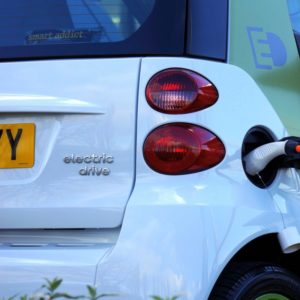There has recently been a rise in electric vehicle sales and automakers are continuously working on technology to make their battery-powered vehicles better. There are many benefits and some downsides to owning an electric vehicle. Some of which may be a deal-breaker depending on your situation. If you drive long distances often the choice of electric vehicles today may not be good for you. However, if you drive a short distance daily an electric vehicle may be perfect for you. In order to decide what is right for you, you should weigh the benefits and disadvantages.
Electric vehicles are much more energy efficient than gasoline-powered vehicles. EV’s (electric vehicles) are able to convert about 60% of their power to their wheels. Whereas gasoline vehicles are only able to convert about 20% of their power to their wheels. This not only means you have much more power altogether it also means that you have much more power much quicker than in a gas powered vehicle.
Electric motors provide quiet and smooth operation and stronger acceleration. They also require less maintenance than internal combustion engines. The battery, motor, and other electronics require little to no regular maintenance, they have fewer fluids to change, and they use a brake system called regenerative braking which significantly reduces brake wear. The process of regenerative braking uses the otherwise lost energy from braking and sends it back to the electric motor for use. This technique is much more efficient than in a gas powered vehicle where the energy used to brake is lost as heat. There are fewer moving parts and the batteries are made to last the life of the vehicle and many automakers offer warranties up to 100,000 miles. The government also offers incentives to purchase an electric vehicle that could be as high as $7500.
One downside to EV’s is that the driving range is typically very limited. Many models can only go up to 120 miles on a charge where others can actually go 300 miles. Not only that but just because the batteries are supposed to last the lifetime of the vehicle doesn’t mean they always do. Having to replace the battery packs on an EV outside of a warranty is an extremely expensive job. On top of that, a full recharge can take up to eight hours. Finding a place to do this is also sometimes difficult and may leave you stranded.
California has recently announced they will be investing money into building roads that harvest energy which could possibly be used to fuel electric vehicles. Tesla has also announced a project they are working on which will allow the batteries in these vehicles to be recycled – a problem that we have faced ever since battery-powered vehicles came into production. There is no way to safely recycle the used batteries yet. The technology in these cars is relatively new and as technology progresses we will most likely see a large increase in electric vehicle volume.






